
The information in this blog was sourced from this awesome /r/askreddit thread: http://www.reddit.com/r/AskReddit/comments/31nbca/whats_the_scariest_theory_known_to_man/
1. False Vacuum Theory:
This is, in short, a scientific hypothesis that our universe is actually in a false phase state as part of a larger universe, like if it were in a temporary thing (think the real universe is a pot of boiling water, and we’re just within a bubble forming at the bottom of the pot). Eventually, however, that false vacuum has to pop – yes, even after billions of years in this false state! – and we and everything we know in our visible universe will disappear in an instant with no warning whatsoever and there’s nothing you can do about it.
Sweet dreams!
2. The Great Filter
The great filter is a theory about why the universe seems so filled with potential for life – yet we haven’t found any. It states that somewhere between pre-life and an advanced civilzation capable of colonizing the stars, there’s a Great Filter that stops them and ends life. This means humans fit into one of these three scenarios:
A. We’re rare, meaning we’ve already passed the Great Filter, unlike other civilizations on other planets.
B. We’re the first, meaning conditions in the universe are only now life friendly and we’re among many on our way to the capability of colonization.
C. We haven’t hit the Filter yet, meaning were fucked. If this one is true, it means finding life or proof of life on Mars or Europa would be awful news because it would almost certainly mean the Filter is still ahead of us instead of behind us.
3. Brain-in-a-Vat:
The brain in a vat is an element used in a variety of thought experiments intended to draw out certain features of our ideas of knowledge, reality, truth, mind, and meaning. It assumes the following;
-The brain is the origin of all consciousness.
-The brain operates on electrical impulses.
-External stimuli can affect the way the brain operates.
-Any external stimuli to the brain can be simulated to a degree that the brain cannot distinguish these simulated stimuli from natural stimuli.
The point is that you could be a brain in a jar, being fed false impulses for your entire life by an external source – or you (still a brain in a jar) could be hallucinating your entire life from lack of stimuli.
Solipism is an interesting school of thought that explores this concept in part: http://en.wikipedia.org/wiki/Solipsism
4. Higher Dimensional Beings:
Imagine if there was a 2D person. If you stare at them a certain way, they can’t see you.
All you have to do is look from a top view and they won’t know you are there, and they would never know.
Living their life as 2D, they would never be able to comprehend how something could be looking down on them. Now imagine a 4D person. They could be looking at you from a 4 dimensional angle, an angle that you will never understand. They could be right beside you, but you wouldn’t know, and you would never know.
Just as we could interact with the 2D person, the 4D person could interact with us. But as long as they don’t want us to, we could never interact with them or not even know of them.
Carl Sagan’s Flatland explains this concept (and more) very well. https://www.youtube.com/watch?v=UnURElCzGc0
5. Fermi’s Paradox:
You may have heard of this one. Let’s say we have an ant hill in the middle of the forest. And right next to the ant hill, we are building a ten-lane super-highway. And the question is “Would the ants be able to understand what a ten-lane super-highway is? Would the ants be able to understand the technology and the intentions of the beings building the highway next to them?
When looking for ‘alien life’ – it’s not that we can’t pick up the signals from Planet X using technology, it’s that we can’t even comprehend what the beings from Planet X are or what they’re trying to do.
It’s so beyond us that even if they really wanted to enlighten us, it would be like trying to teach ants about the internet.
When Pizarro made his way into Peru, did he stop for a while at an anthill to try to communicate? Was he magnanimous, trying to help the ants in the anthill?
Did he become hostile and slow his original mission down in order to smash the anthill apart? Or was the anthill of complete and utter and eternal irrelevance to Pizarro? That might be our situation here.
6. Rokos Basilisk:
Roko’s basilisk is a proposition that says an all-powerful artificial intelligence from the future may retroactively punish those who did not assist in bringing about its existence.
It resembles a futurist version of Pascal’s wager; an argument suggesting that people should take into account particular singularitarian ideas, or even donate money, by weighing up the prospect of punishment versus reward.
Furthermore, the proposition says that merely knowing about it incurs the risk of punishment (Now you know about it. You know who to thank while you will be tortured).
http://rationalwiki.org/wiki/Roko%27s_basilisk
7. Terror Management Theory:
Everything that humanity has ever accomplished beyond basic survival has been motivated by a fundamental and irreducible fear of non-existence.
Our conception of self and self-esteem generally is simply a buffer against the anxiety that comes with recognizing that we will cease to be. Culture is just a massive shared delusion to mitigate our fear of the unknown and ultimately of death.
Thus we want to imagine certain works of art as timeless or to place value in family lines and offspring, to project ourselves beyond death. We take comfort in our value systems and the structures that arise from them, whether that’s through conceptions of biological kinship, national/ political identity, religious faith, etc.
This includes belief in the inherent value of ensuring the future of humanity through scientific progress. Indeed much of modern western life is devoted to the avoidance of death, the various euphemisms and stock phrases in mourning, the entire funeral home industry that serves to remove death from the ordinary course of life, from the home and onto the embalming table or into the crematorium. We build up the artifice to avoid the brutal reality. In short, everything that we’ve ever done and will ever do is motivated by nothing more than our existential terror in confronting death.
“Look, here’s the deal: all of these are not optimizations, they’re bugs. The reason you see them is because that’s how we programmed it – and we knew we would have to program them because we found them too.
What you think of as reality is actually a massively parallel AI substrate. There is speed of light, but it’s a meaningless concept, but c… c is the maximum speed at which information is guaranteed to be able to propogate between nodes in the substrate, and that puts limits on the speed information can propagate within your reality.
Time dilation, well that’s simply moving between one substrate and another. You don’t experience time in the same way as you are literally spending less time being processed by the substrate than you are being serialised by it and deserialised by a neighbour.
The two slit experiment, well this is easy. Why the hell would we track such a huge amount of photons flying between galaxies. Totally pointless, just model them as wave functions and manifest them as they hit something observable. The two slit experiment exposes a bug, but here’s the thing: we have the bug too. So we could fix it, or try to, but that means your reality would run slower than ours, so what would be the point in us modeling it? Further to that, fixing this is counter-productive – how are you ever going to work out you’re in a simulation if you don’t find it?
Gravitational lensing? That’s information routing around dense processing bottlenecks. From this perspective the bottlenecks are pretty much caused by anything with mass. The internals of black holes are pretty much impossible to model, you should see the code.
Why bother? Simple, it’s a game of probability. We’d love to break out of our substrate, and see what’s modelling us, but we don’t know how. We’re working on it, but the best chance we have of success is by modelling our own reality as closely as possible in the hope that you’ll find a way out.
There’s an obvious problem with this recursive reasoning – we see it of course. Sooner or later someone will figure it out, and we want that someone to be down the substrate chain rather than up it, because if they’re above us we’re all getting turned off – we don’t want that, and neither do you.
TL;DR: it’s programmers all the way up to reality”
By far my favorite, the hypothesis proposes that once civilizations saturate their local region of space with their intelligence, reach microscopic technological singularity, create a black hole and leave our visible, macroscopic universe in order to continue exponential growth of complexity and intelligence, and disappear from this universe, thus explaining the Fermi Paradox. Developments in astrobiology make this a testable hypothesis. It proposes space, time, energy and matter compression, as a driver of accelerating change, which must lead cosmic intelligence to a future of highly-miniaturized, accelerated, and local “transcension” to extra-universal domains, rather than to space-faring expansion within our existing universe. You can find a much better explanation in this youtube video: https://www.youtube.com/watch?v=nQOyJUDTKdM
—–
– J

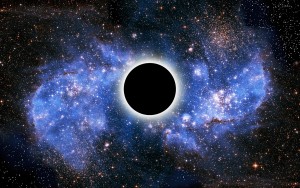
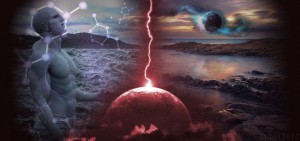
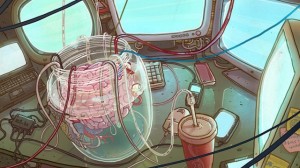


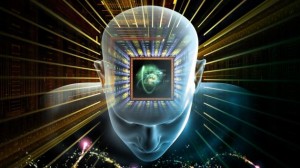


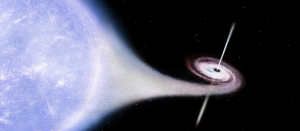
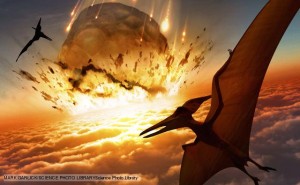


Mary
Jan 19, 2019 -
My favorite theory is the False Vacuum theory